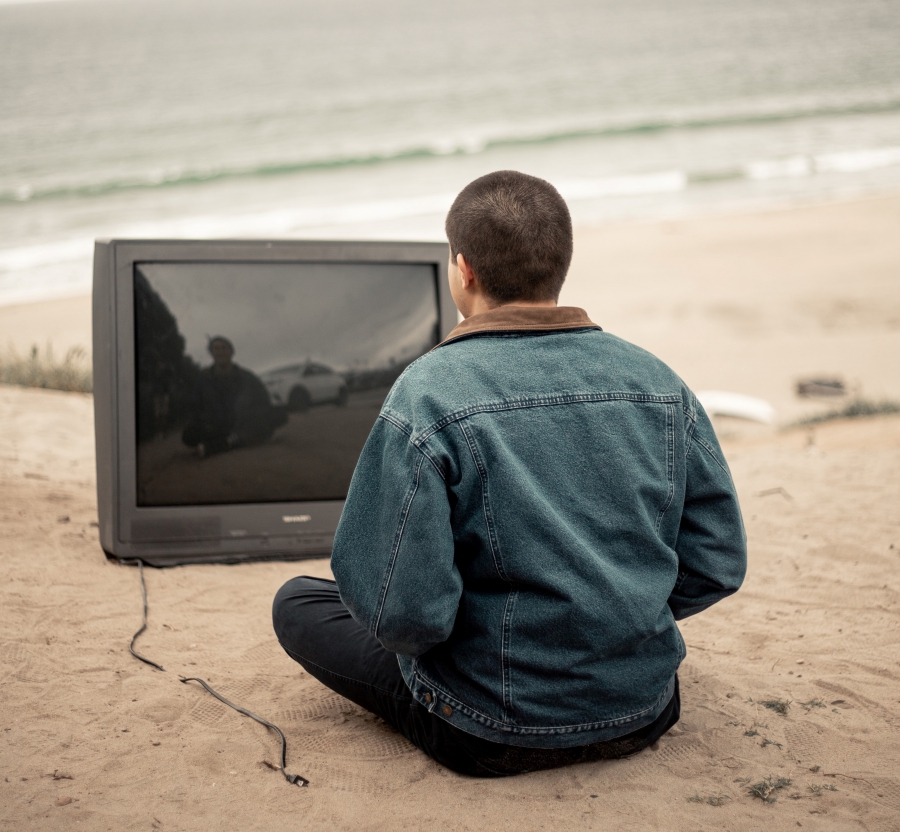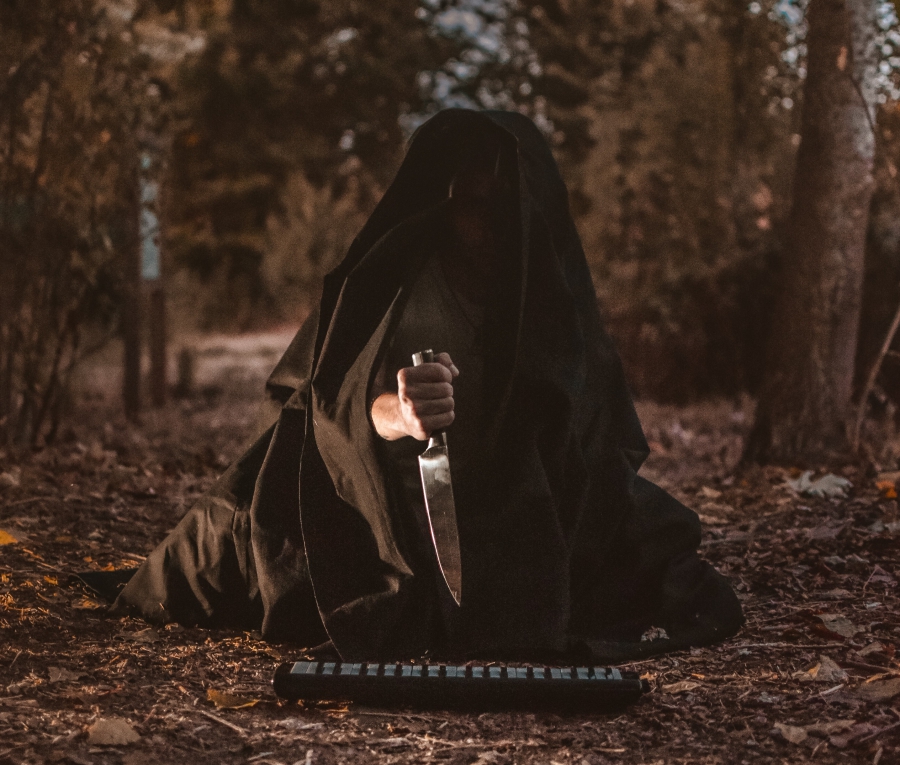English blog archive 2020

Photo by JESHOOTS.COM on Unsplash
June 2020 © Gaby van Halteren
The Pros and Cons of Binge Watching
June slipped into July without telling me—sneaky months, they are—so here is my June blog post on July 4. I bet you'd probably never noticed if I hadn't told you, but there it is.
I also needed to find something other to write about than: OMG, the first half of the year is already gone!
OMG, it is! 2020 will be a year for the history books, but not in a good way, at least not until now. And since we all are waiting for the second or even third shoe of corona virus to drop, my guess is, the rest of the year won't be either.
But, after a day full of dark clouds and constant rain, today the sun is shining again, presenting me with the opportunity to sit in my garden and work from there. The same way this strange world we're living in right now will give way to a new and better world, different from the one we were used to, but still one in which we can live our lives with renewed purpose and happiness again. Well, at least if we can reverse climate change, but let's not go there right now, it's too beautiful a day...
This is the topic I came up with for this blog post:
The Pros and Cons of Binge Watching (from a writer's perspective)
I finally watched the last three seasons of Suits on Netflix. What I did wasn't officially binge watching, as in watching an entire season's episodes back to back. I didn't watch more than two episodes a day, but still the story structure of the episodes came down on me in full force. Apart from the fact that our guys will (usually) overcome all obstacles, even if the odds are against them big time, and win in the end, there is a clear structure that every episode follows—or two episodes that belong together when the problem is too big for one episode to solve.
The episode stories follow the classic story structure, the one we, the readers, watchers and listeners, are accustomed to, the one we love and cherish. The protagonists are made aware of something/someone they need to turn their attention to. In Suits it's a new case, accompanied by a good cause—even if that cause at first seems a little shady or not worthy—and they devise their strategy.
Of course, the first time they think they have the antagonist/opposing council pinned down, the antagonist will present a surprising turn of events which the protagonists didn't expect and which leaves them at a disadvantage for the moment. But they buckle down, dive deeper, bring up more information, more details and come up with a new strategy. Their antagonist, sure they have defeated our good guys, let their guard down, and the protagonists are able to swoop in and save the day—after all, they are the good guys.
Sometimes there is another round of being crushed and picking themselves up again, digging deeper still and then, finally, FINALLY, finding the one thing they need to end this fight in their/their client's favor.

Photo by Josh Kahen on Unsplash
As a reader/watcher, and when the story is done well and has at least one surprising twist, I love this structure. As a writer I ask myself, why is this structure such a universal thing that literally everyone who is telling stories keeps following it? And what would happen if I didn't?
I haven't had the courage to act on that last question yet, and my guess is if I did I'd end up discovering that whatever I wrote is still following the story structure somehow—that's how universal it is, you simply can't avoid it.
So how is this blog post about the pros and cons of binge watching, you ask, and rightfully so? All I talked about is story structure. Well, there is a little addition to the title, saying "from a writer's perspective". What I mean by that is that binge watching has given me the opportunity to experience first hand that this story structure works each and every time, and that every reader, every watcher and every listener craves the tension it provides that leads up to the satisfying ending which, in turn, leaves us wanting more—even if we all know at the beginning how the story will play out, as is customary with TV series.
And now I'm going back to writing my own story. I have an idea where I will be ending up... how about you?
The blog post The Pros and Cons of Binge Watching was first published on puresimplewriting.com.

April/May 2020 © Gaby van Halteren
Make This Your A Part Of Your New Normal
Yes, the people in the image above are standing way too close to each other for our new normal. And yes, it might look like they're enjoying a nice evening with each other. But... they are also networking. We all are, all the time, even now. Maybe we do it digitally or 6 feet apart from each other, but it's still happening.
I read an article in which the author talked about gesture networking. I wrote down the term and thought I'd write a blog post about it in the future. Now that I decided to finally write it, Google is letting me down, I can't find it. For pages on end Google shows me search results about neural networks and gesture recognition—captivating reading, I'm sure, but not what I'm looking for. And, of course, I can't remember the name of the author. So I'm going to wing it here, hoping I can remember enough to make this interesting.
Needed now more than ever
What exactly is gesture networking? We all know what networking is (see above) and we all know what gestures are, literally and figuratively. This is about the figurative meaning of the word, not gesturing wildly while networking (not recommended). Basically it is about being nice to people without expecting anything in return, in any case not in the short run. A simple example: you are at some kind of (digital) event and someone asks you a question in your field of expertise. You're an editor specializing in romance novels and the first-time writer has a problem with writing a love triangle without making it sound cheesy or only repeating this well-trodden trope. You now have the choice: talk about a fitting solution without spending too much time on it or the writer so you can go on networking. Or you can take the time to explain, go deeper and tell the writer to send you the part of their novel they're struggling with, so you can take a look and recommend a solution. That last one, of course, is gesture networking.
Should you give away your expertise for free?
Short answer: yes. Long answer, also answering the follow-up question why: as you undoubtedly read somewhere before, people may not remember what you did for them or how you did it, but they will remember how you made them feel. Offering a first-time writer to do something for them for free to allow them to continue writing is unbelievably valuable for that, probably insecure, writer. As soon as they have finished their umpteenth draft, the one they think is good enough for an editor, they may contact you. Or not. Because they don't have the money. Because their mother (or cousin, or friend) offers to read it. That is a very real possibility. But they most certainly won't forget your kindness. They may come to you with their second novel or they may recommend you to another writer or mention you in a blog post or on a podcast or (fill in about a hundred other ways); the possibilities are endless.
But even if they don't and no extra work comes your way, you still will have done a very generous deed and helped that writer fulfil their dreams. You paid it forward. That is a beautiful thing. Also, gesture networking.
The blog post Make This A Part Of Your New Normal was first published on puresimplewriting.com.

March 2020 © Gaby van Halteren
How about escaping to another world and/or another millennium? Right now that sounds like a pretty good idea, doesn't it? Let's forget about our world and our problems for a while and travel through space and time!
Space Patrol – Raumpatrouille
A blog post on Medium by an author I follow, N.A. Turner, brought me back to my childhood in the blink of an eye. It featured the above image and instantly catapulted me back to the thrill of immersing myself into the first grown-up science fiction series my parents would let me watch after eight pm at the tender age of eight.
It was the German sf series Raumpatrouille (space patrol in English, but you probably got that from the title), a series with only one season and a mere seven episodes which turned into a cult series In Germany much like the original Star Trek with Captain Kirk, Spock, Bones and Scotty in the US and the world.
I was madly in love with Commander McLane, played by Dietmar Schönherr. Yes, eight years old with a major crush on this very grow-up actor, and I can't even count the times that I drew that spaceship. My love for sci fi was born!
I still watch this (black and white!) series at least once a year, it has become a cherished ritual. I tried to get my kids to watch it with me several times, but each time they just looked at me with pity in their eyes, thinking that at last I must have gone completely mad. Watching an old series in black and white? With ridiculously outdated special effects?? And in GERMAN??? Well, their loss.
If you're a little more open-minded, here's episode 1 on YouTube.
You can find the other six episodes there as well. And here's some background information in English.
Oh, and if you think you see an iron and other household appliances on the set, don't doubt your eyes, because, yes, they used an iron, amongst others, as a prop. Sci fi wasn't very popular in Germany in the sixties, and everything had to be done on an extremely low budget – hence the use of common household and kitchen utensils. Everything they built, be it the inside of the Orion, the quarters and the bar under the sea or the weapons, was low quality and let them down on more than one occasion. Kudos to the actors who just kept going and the producers who decided not to delete those scenes. See if you can spot some of those 'historic' and funny moments.
The blog post Space Patrol – Raumpatrouille was first published on puresimplewriting.com.

Photo by David Klein on Unsplash
February 2020 © Gaby van Halteren
Dear Writer: Are You a Typist or a Dictator?
Dear reader: This blog post is not about writing as a craft, so you don't have to skip it. It's about me confessing why I haven't switched to using a voice recorder yet like so many writers have.
NB: The image of the typewriter isn't meant to imply that I think typing is old-fashioned, I simply happen to like old typewriters (not to use, just to look at).
Which camp are you? Do you think a writer should actually write (or bleed, as Hemingway called it) or just switch on some kind of voice recorder or their smartphone and dictate a whole chapter or more while taking a short walk?
The last one seems the easier road to take, not to mention the more prolific one, but right now I'm camp typist. In part because I'm still a newbie writer--and still not published, though we're getting closer--and it's easier for me to form the thoughts that lead to words that lead to sentences that ultimately lead to a novel while I'm writing rather than talking into some device. And, of course, there is a part of me that is terrified of saying the words (and sentences etc.) out loud, especially since English isn't my native language. I might be writing in English, it is, after all, my favorite language, but talking into a recorder in that language is in a whole different ballpark. So, for the moment, I'm still bleeding.
.jpg)
Image by VYACHESLAV TITOV on Pixabay
Read the whole thing out loud
It is highly recommended that, when finished, writers read their whole book, fiction as well as non-fiction, out loud to themselves. It's then that you catch things, for the most part bits and pieces of dialogue, that aren't working. I want and intend to do that, but I've been procrastinating for some time now. I know there is software that does it for you, but somehow this doesn't seem right. It is my book, and I should be the one reading it out loud.
Mind you, I'm just talking about reading my own writing to myself, not about anything related to audio books. I intend to have audio books later on, but I would never, ever, record them myself. So what am I so afraid of? Sounding stupid for one, not pronouncing the words right at the first go—or the second, or the third—in essence, not being perfect when every fiber of my perfectionist mind wants me to be, even if I'm the only one hearing myself.
It is crystal clear that I have issues to resolve in that department. Step 1: Get used to my own voice. Step 2: Read my first novel out loud to myself without judging myself, my voice or my pronunciation. Step 3: After mastering that, get more 'writing' done in less time. Or is bleeding the way to go? What do you think?
The blog post Dear Writer: Are You a Typist or a Dictator? was first published on puresimplewriting.com.
*****

Photo StartupStockPhotos auf Pixabay
January 2020 © Gaby van Halteren
Revision
For the last month I have been revising my first (in series) fantasy novel and my first (in series) Christmas romance novel. Two first drafts by a newbie writer, revised by a newbie writer. Before you think: newbie writer, get an editor—that is exactly what I'm doing, both novel go to a professional and experienced editor. But before I send them to her, I need to revise them myself to get the most embarrassing mistakes in every category out first.
The first and foremost is, of course, telling when I should be showing. I wrote about show, don't tell two blogs ago, so I'm not going into details here, suffice to say, I need to pay special attention to that one.
But, in my defense (and that of every writer), your first draft is called that for a reason. It is the beginning of your story, a version you write for yourself and show to nobody. You get the words on the page without holding back or interrupting your writing to try and find the perfect synonym or making sure the grammar is 100% right. You're in the flow and get it all out. Then you let it settle for a bit, get back to it and revise. Some say, the worse your first draft, the better. I'm afraid my perfectionist's brain cannot and will not agree with that, but I get the point.
Killing my darlings
At first I refused to do it. How could anyone, least of all me, myself and I demand of me to delete one of my characters, a perfectly crafted paragraph or a whole chapter? But once I realized that the story was better without them, stronger, more concise, more reader-friendly, I did it, albeit with pain in my heart. (And I didn't delete them completely, they're waiting patiently for a new life in a special outtakes file.)

Photo by Javier Peñas on Unsplash
Whenever you feel an impulse to perpetrate a piece of exceptionally fine writing, obey it — wholeheartedly — and delete it before sending your manuscript to press. Murder your darlings.
— Sir Arthur Quiller-Couch
Weasel words and unnecessary adjectives and adverbs
So, let's get on with it. Right there is one of my weasel words, so. Along with well and that it populates my writing. As you might have guessed by now, weasel words are those which wiggle themselves into your writing without you noticing it. That is okay for the first draft, but they shouldn't end up in the published book.
The same goes for adjectives and adverbs you use with youthful exuberance to make sure the reader really, really gets it. The tall, enormous giant of a man is simply a giant of a man. When reading that description everybody has a clear picture in their mind. When you (in other words, I) resort to simply adding an adverb to a verb instead of searching for a fitting, more descriptive synonym, that is you/me, the creative, being uncreative. Example: walk quickly when hurry, hasten or rush are much better choices.
And then there are the redundant adjectives and adverbs. Of course, the rain is wet, you don't have to tell me that, it's implied. Hastily she raced for the bus. Of course, she did. Stephen King said it best in his own inimitable way:
I believe the road to hell is paved with adverbs and I will shout it from the rooftops.
— Stephen King
It's obvious that I know exactly how to revise my first drafts. In theory. Now I only have to act accordingly...
The blog post Revision was first published on puresimplewriting.com.
Missed a blog post? You can read all of them in my archive here (2018) and here (2019).
Pure writing.
Simple writing.
Pure and simple: writing.







